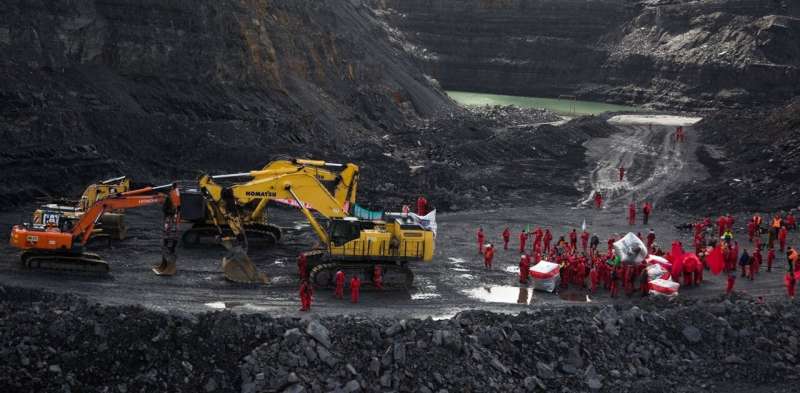Here's what it would take to end emissions from fossil fuels

Achieving net zero greenhouse gas emissions in the UK by 2050 is a massive challenge. It'll mainly be achieved through cutting emissions from fossil fuels: coal, natural gas and oil. This will require rapid, deep transformation across the UK's energy system.
Smaller energy transformations have taken place before in the UK. For example, during 1966 to 1977, there was a shift from using town gas (made from burning coal) to using North Sea natural gas. The transformation involved building a national gas grid, as well as updating millions of pieces of equipment. But since then, the UK's energy system has become far more complex. The country has never transformed such a large, critical apparatus.
There are two main ways we can cut emissions from fossil fuels: elimination and decarbonisation.
Elimination means that low-carbon energy sources such as renewables, hydrogen gas from low-carbon sources and nuclear power replace fossil fuels. This process requires "fuel switching"—changing or upgrading systems and equipment to run on these new fuels, such as moving from petrol to electric cars. The two largest domains where fuel switching is required are vehicles and building heating.
On the other hand, decarbonisation requires capturing emissions as they are produced. This technology, called carbon capture and use or storage, is generally done by chemically compressing carbon dioxide into a liquid and either storing it or using it to make synthetic fuels, chemicals and building materials.
Additionally, other "negative emissions technologies" that take greenhouse gases out of the air are being developed, but so far none are ready for mass deployment.
Challenges
Several plans for getting the UK to reach net zero emissions have been made public: including from the Committee on Climate Change, the Department for Business, Energy and Industrial Strategy and the National Grid.
Country governments, including Scotland, Wales and Northern Ireland have also made plans—but how achievable these will be in practice remains to be seen.
Among the many challenges that these plans pose, two stand out: sorting out mass fuel switching and deploying complex new technologies related to emissions reduction.
Mass fuel switching could cause problems if new equipment is initially too scarce, unreliable, or more expensive to buy or run than existing equipment. Additionally, actually meeting growing demand for low-carbon energy will mean significantly expanding the country's current electricity generation capacity. Ensuring there are no delays in providing this power to citizens will be crucial.
Although these problems may only occur for a short time while the low-carbon transition takes place, they would still require rapid responses from those governing the transition to avoid causing social unrest.
Most energy transition plans also rely at least partly on some new, complex technologies being added to our roster, to help generate greener energy. These include carbon capture and storage, as well as advanced nuclear power such as small modular reactors and green hydrogen produced using low-carbon electricity. The speed with which these inventions are developed and adopted, both in industry and society, will have to increase if we are to meet climate goals.
My own research into the complexity of energy transition shows that strong political leadership is needed to to keep transitions on track.
Leaders shouldn't just set ambitious energy efficiency goals. They must also support energy efficiency improvement programs like retrofitting houses, encourage investment in energy technology research, and help local governments to make the transition easier for the public: for example, by installing more electric vehicle charging points.
Opportunities
Making a successful transition to low-carbon energy wouldn't just help the UK meet its net zero targets and climate obligations. Other benefits could include better local air quality, less energy poverty, better national energy security and more reliable transport.
Social movements could play a key role during this transition. This might look like supporting people vulnerable to fuel poverty (including the elderly, renters and those living in rural areas) through the fuel switching process. Or it could involve developing new businesses to provide essential services like heating and transport in more efficient, sustainable ways.
And internationally, the UK could become more economically competitive within a decarbonised world, demonstrating how industrialized countries can achieve economic growth while cutting carbon emissions and encouraging social wellbeing.
Provided by The Conversation
This article is republished from The Conversation under a Creative Commons license. Read the original article.![]()





















